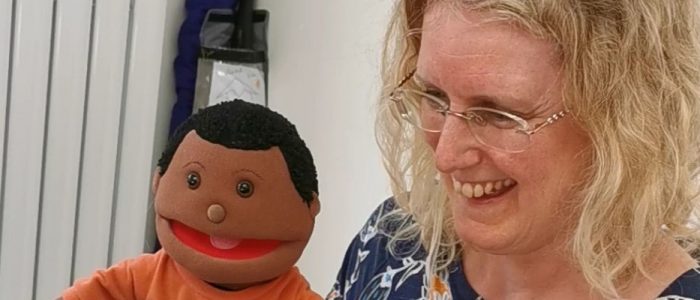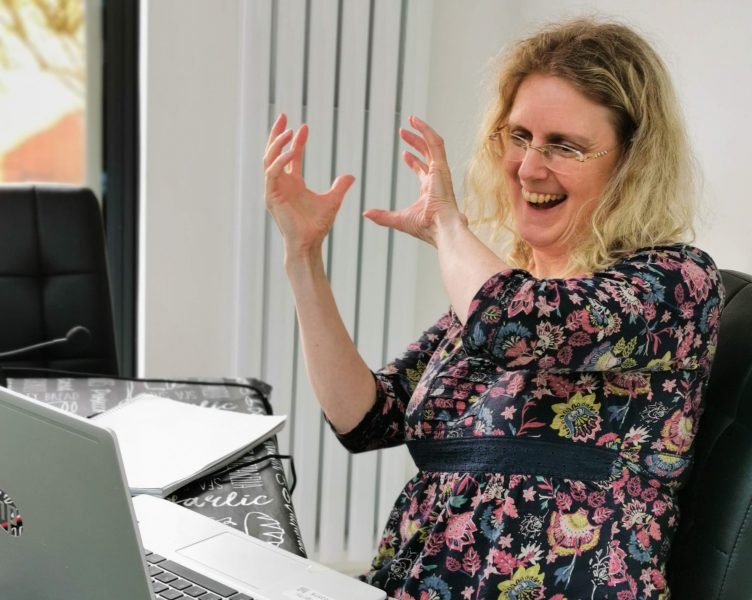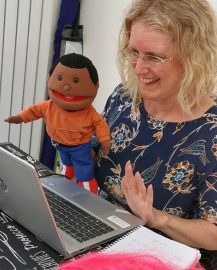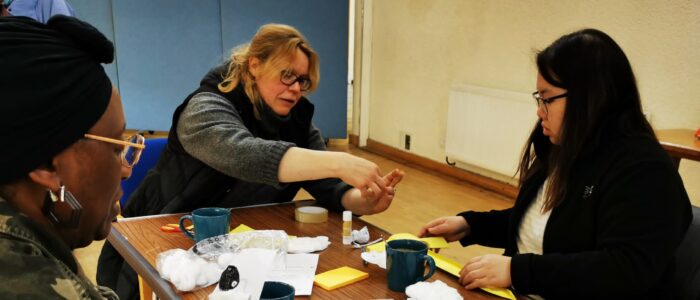Can Creative English really work on Zoom? A facilitator reflects on a year of online drama

When we first went into lockdown last year, I’ll be honest, figuring out how to run drama sessions online wasn’t very high on my list of priorities. I was more immediately concerned with how I would access the books I needed to write my MA dissertation, where to find the ingredients for my fiancé’s birthday cake when all the supermarket shelves had been stripped bare, and the fact that I wouldn’t be able to go to Mamma Mia: The Party with my Mum (yes). I was aware of the distress of drama facilitators the world over, and I opined extensively on the fate of theatres and live performance to my partner as we potted-on our first tomato seedlings (along with every other budding gardener of the pandemic), but the stress of figuring out how to take a community drama project online wasn’t my problem. Like so many other practitioners at the start of the pandemic, I assumed it just couldn’t happen. It wouldn’t work. Any attempt at recreating what we experienced in a room together just couldn’t be pulled off when we were all sat at home in front of computer screens.
As the weeks stretched into months and I realised that COVID was still going to be very much a thing by the time I finished my MA, I started to think more proactively about how I could adapt my facilitation skills to work online. By this time, those among us with a stronger growth-mindset than me(!) had banded together to share approaches to working online and to teach each other activities they had successfully adapted to deliver via Zoom. I signed up for a few workshops and I was amazed that it was still possible to have fun, be creative and feel connected, even though we weren’t sharing the same physical space.
One of the workshops I joined in with was the Zoom Creative English session, and here are some of the things I discovered: Amazingly, ball games are still entirely possible via a screen – just without the ball! You just have to pretend to throw something to someone on the screen and shout their name as you do it, then they ‘catch’ it. As people warm up you can introduce more elements, and this makes it more and more hilarious – for example ‘it’s a big ball’, ‘it’s a hot ball’ – and people can start to improvise on how they catch it, pretending to miss, or diving off the screen for a ball that has been ‘thrown’ too far. Vocabulary games such as ‘Doctor Says’, where the facilitator gets everyone to copy their actions and then aims to catch people out by saying a different action to the one they’re doing are also just as effective, and you can even play a version of ‘Anyone Who’ where people switch their cameras off and on again (switching places on the screen) if the statement is true for them!
The characters in the story are an integral part of Creative English, and Dr Anne Smith has created a series of mini videos, embedded in the PowerPoints that are designed to go alongside the sessions. Utilising iconic items of the Facilitator’s Toolkit, such as a pink wig and a puppet called Seemab, these two-minute videos follow a character as they experience common challenges of the current season. Sally struggles with boredom and overeating. Ben finds it hard to focus on revision while he’s studying at home and spends too much time on his phone. In the most recent session, Peter discovers that Sally has been avoiding going for her vaccine and keeps finding reminder letters that Sally has hidden in different parts of the house. These inject humour and generate plenty of problem-solving ideas for learners, who then go into breakout rooms to discuss what the characters should do, and to practise the necessary language.

As lockdown eases, we’re excited that more Creative English licence holders are returning to running sessions in person. In June and July, we’ll be running the first face-to-face training for new facilitators in over a year, in addition to training on Zoom. There’s nothing quite like being in a room with people, laughing with them, witnessing the unique and hilarious contributions learners bring to the roleplays, and feeling the energy of being together in person. But can Creative English work on Zoom? Absolutely.
To find out more about Creative English licences and upcoming training, please contact: [email protected]




